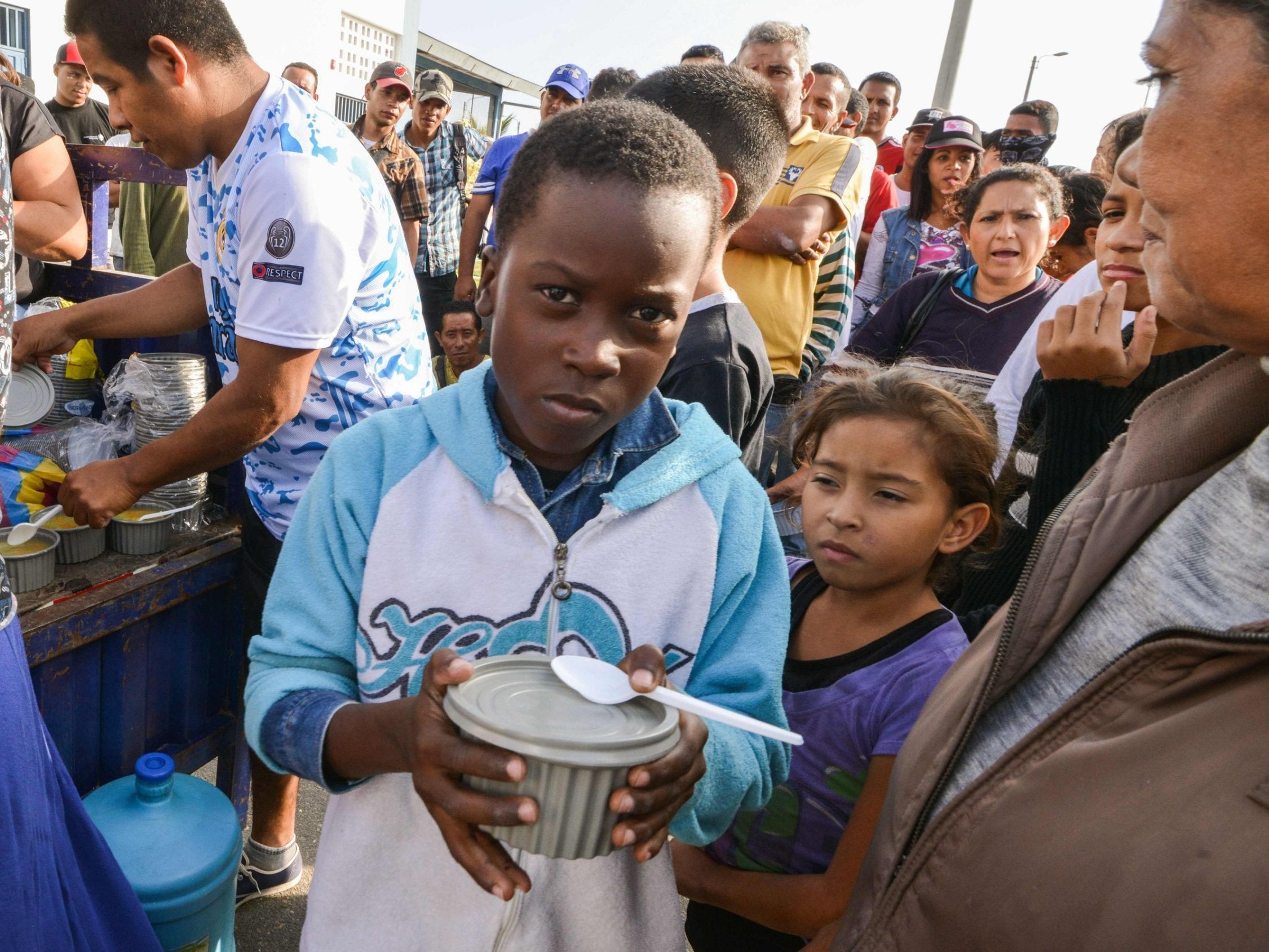Latin American nations relax passport rules for Venezuelan migrants
Neighbouring countries are calling on Venezuela to speed up its passport registry services

Eleven Latin American countries have signed a joint-agreement to accept Venezuelan migrants arriving to their borders with expired travel documents.
The move arrives after a shortage of paper and a corrupted passport registry service left countless Venezuelans without proper documents to flee from starvation and hyperinflation, as the nation’s economy continues to go into free-fall.
The countries involved in the declaration — agreed upon after a two-day meeting in the Ecuadorean capital of Quito — are Argentina, Brazil, Chile, Colombia, Costa Rica, Ecuador, Mexico, Panama, Paraguay, Peru and Uruguay
The Saime, Venezuela’s registry service, is overrun by "mafias" that reportedly charge as much as $1,000 to £5,000 to renew a single passport, according to the government.
Meanwhile, Venezuelan President Nicolás Maduro has claimed migrants who fled the country "regret" leaving, saying they “fall for propaganda only to leave and clean toilets in Miami".
Over 2.3m Venezuelans have left since the country began experiencing utter collapse, with severe shortages and hyperinflation leading to starvation and international outcry.

The crisis has forced neighbouring countries to grapple with helping thousands of Venezuelans entering their borders at an ever-increasing rate.
Some nations have responded by restricting certain migrants, including Ecuador, which began demanding Venezuelans show up-to-date passports in August. A court later ruled the policy violated a free travel agreement already in effect throughout the region, however.
The BBC reported on thousands of migrants who rushed to Peru before a similar policy went into effect restricting migrants from entering the country without a valid passport, save for pregnant women and children.
Those regions will no longer enforce those measurements, instead agreeing to ease requirements for Venezuelans with old travel documents. In the declaration, the countries called on the Venezuelan government to speed up its issuing of valid passports for migrants and travellers with emergency situations.
Join our commenting forum
Join thought-provoking conversations, follow other Independent readers and see their replies
Comments
Bookmark popover
Removed from bookmarks